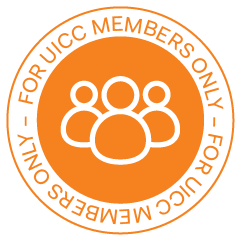
Course overview


Health financing, one of the seven building blocks of a well-functioning health system, can be a key policy instrument to improve health and reduce health inequalities if aimed at removing financial barriers to accessing health care and preventing financial hardship.
The long-term and complex nature of cancer and other chronic and non-communicable diseases (NCDs) paired with the rising burden of NCDs, particularly in low- and middle-income countries, pose serious financial challenges to the equitable provision of cancer care and protection of households from catastrophic expenditure.
By discussing the financing component of the health system and its core functions, and focusing on the practical implications for advocacy, this course will highlight how health financing can be used as a policy-making tool to pursue universal coverage in cancer care. Drawing lessons from case studies to reflect the context of low- and middle-income countries globally, the course will focus on the practical policy and strategic decision-making options available to countries as they follow their individual paths to universal health coverage in the context of cancer control.
This course is a revamp of the version delivered in 2021, updated with new material and resources, thanks to collaboration with ThinkWell and support by MSD. It is accredited by the Accreditation Council of Oncology in Europe (ACOE) and its completion gives 7 European CME Credits.
This course is kindly supported by MSD.

The long-term and complex nature of cancer and other chronic and non-communicable diseases (NCDs) paired with the rising burden of NCDs, particularly in low- and middle-income countries, pose serious financial challenges to the equitable provision of cancer care and protection of households from catastrophic expenditure.
By discussing the financing component of the health system and its core functions, and focusing on the practical implications for advocacy, this course will highlight how health financing can be used as a policy-making tool to pursue universal coverage in cancer care. Drawing lessons from case studies to reflect the context of low- and middle-income countries globally, the course will focus on the practical policy and strategic decision-making options available to countries as they follow their individual paths to universal health coverage in the context of cancer control.
This course is a revamp of the version delivered in 2021, updated with new material and resources, thanks to collaboration with ThinkWell and support by MSD. It is accredited by the Accreditation Council of Oncology in Europe (ACOE) and its completion gives 7 European CME Credits.
This course is kindly supported by MSD.




